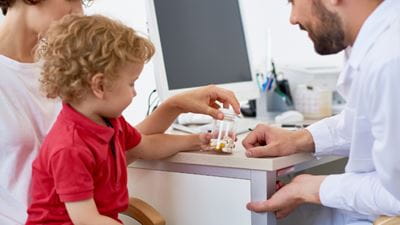All Search Results
-
How breastfeeding benefits you and your baby
I’d like to let you know about some of the benefits of breastfeeding and offer some resources for breastfeeding moms. Before we get started, though, I want you to know that this is not meant to make you feel like you have to breast feed or that you failed if you stopped or didn’t want to breast feed.
-
You can save a life: what you must know as a bystander of a traumatic injury
For those among us who have dedicated their lives to caring for others within the hospital setting, life and death are regrettably very familiar topics. Our Emergency Department personnel have the responsibility and the privilege of caring for families in their most vulnerable moments, and because we are a Level One Trauma Center our dedicated staff is expertly trained to care for patients who have suffered accidents or injuries of the most critical nature.
-
The Go Go Brothers Learn Imagination is Limitless in the Go Go World
For bothers “Rooey,” 8, and “Bean Boy,” 6, being different than the other kids in their class was not always accepted with a sense of pride. Rooey was diagnosed with a speech and language disorder at age 3 and with Autism and ADHD when he was six. Bean Boy was born at Orlando Health Winnie Palmer Hospital for Women & Babies with a severe form of spina bifida and has undergone several surgeries at Orlando Health Arnold Palmer Hospital for Children to help with his condition.
-
How to tell if your child has a cold or a sinus infection
Does your child have a viral illness such as the common cold or a bacterial illness known as a sinus infection?
-
Join Us in Supporting #ChildrensHospitalsWeek
 To celebrate the amazing things being done at Orlando Health Arnold Palmer Hospital for Children, we’re inviting you to join us March 5-11 in celebrating #ChildrensHospitalsWeek.
To celebrate the amazing things being done at Orlando Health Arnold Palmer Hospital for Children, we’re inviting you to join us March 5-11 in celebrating #ChildrensHospitalsWeek. -
How to prevent accidental poisoning in your home
One million children in the U.S. under the age of six years will suffer from some type of poisoning this year. Exposure to toxic substances can occur in the home, at school, at a grandparent’s or friend’s house- anywhere your little ones can roam. These unfortunate events tend to happen when a parent or caregiver is with a child, but not necessarily paying close attention.
-
Car Seat Safety Guidelines
-
Teaching Your Child to Swallow Pills
It seems like a no-brainer – just pop the pill in your mouth and swallow. It’s easy to forget, though, that swallowing a pill is something that must be learned. It may feel normal and natural to us grown-ups, but it’s not normal or natural for kids. For children who need to take medications, either for an unexpected illness or a long-term condition, this seemingly small issue can produce a lot of anxiety, making it a big issue. If you’ve ever sat on your kitchen floor with a kid screaming “I can’t do it!”, you know what I mean.

-
In Parenting a Preteen, Maybe Laughter and Friendship Aren’t out of the Question
My almost 13-year-old son and I laughed so hard at a commercial on TV last night that we both cried. I cried big, crazy tears that exploded out of my eyes and laughed so hard I could not catch my breath. In his nearly 13 years on this earth, we have laughed together a million times, but I don’t think we’ve ever laughed together that hard, or in that way. For a moment, we were both hysterical over the same silly joke, not as mother and son but just two people hanging out and having a good time.
-
Healthy Snacks Can Help You Manage Your Family’s Hectic Lifestyle
This blog was written in conjunction with pediatric medical resident, Sanila Sarkar, MD.






